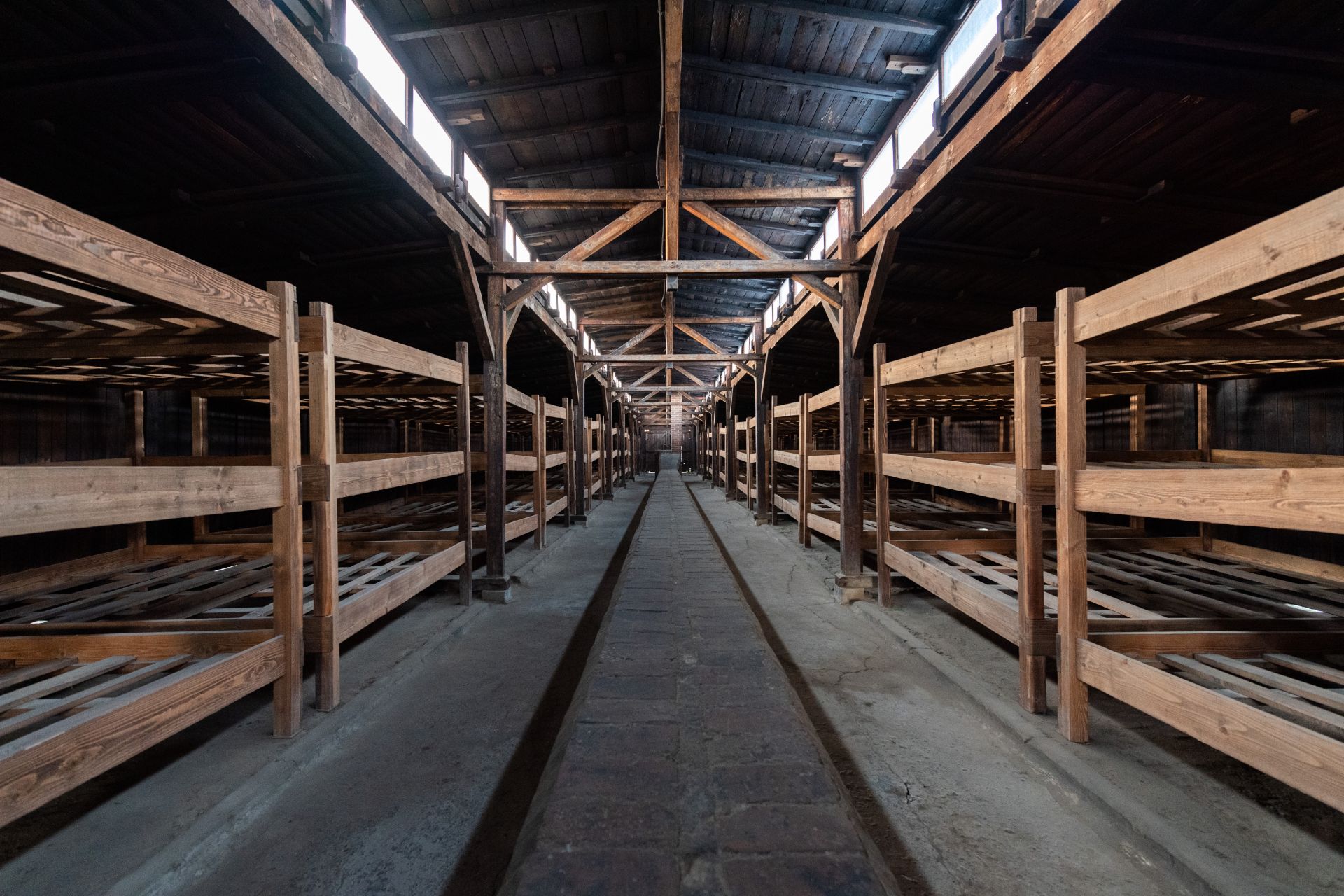Jonathan Freedland, the guest in Episode 6 of New Lines magazine’s “Wider Angle” podcast, is a Guardian columnist, podcast broadcaster and presenter at BBC Radio 4. He is a past winner of an Orwell Prize for journalism and the author of 12 books. The latest one, “The Escape Artist: The Man Who Broke Out of Auschwitz to Warn the World,” was the basis of the conversation with Riada Asimovic Akyol.
Rudolf Vrba, the main character in Freedland’s book, along with companion Fred Wetzler, were the first Jewish prisoners who successfully escaped Auschwitz. Through descriptions of the childhood and family life of Walter Rosenberg, Vrba’s name before he changed it later in life, Freedland also depicts the expanding antisemitism in Europe in the late 1930s. As anti-Jewish propaganda grew more prevalent in Rosenberg’s homeland of Slovakia and elsewhere, grisly policies followed.
Rosenberg was transported to Auschwitz in June 1942, where he soon learned that “death was all around.” Out of every five Jewish arrivals, at least four were selected for immediate death, Freedland notes. And while Rosenberg never stopped thinking about escaping, it was while working at the railway platform, the so-called ramp, where he could see myriad trainloads of arriving Jews, that he realized that they were completely unaware about what was about to happen to them. Keeping this mass-scale murder in secret, while lying to their victims’ face until the end, was the Nazis’ purposeful and “absolutely essential” strategy. Freedland explains Rosenberg’s realization “that the one element that the Nazi killing machine relies on, more than any other, is deception, that it’s the fact that they deceived their victims that enables the Nazis to proceed in an orderly fashion with this mass slaughter.”
Freedland adds how a 17-year-old Rosenberg then became even more determined to get out of Auschwitz — to tell the world and at the time “currently ignorant” Jews of Europe the truth, to warn them about it. But after Rosenberg’s brilliant, meticulously planned and incredibly difficult escape from Auschwitz on April 10, 1944, with his companion Wetzler, he soon became greatly disappointed.
It was only later that he learned that “the rest of the world was not nearly as ignorant” as he and Fred had thought — like the leading politicians in London or Washington, for example. Yet, for their own different war-related reasons, they did not act to save the Jews.
And even after the word was out in the world, many among the people whom Vrba wanted to warn the most — his fellow Jews in Hungary primarily — did not trust the “Vrba-Wetzler report” (Rosenberg having adopted his new name). “The painful lesson of the Vrba-Wetzler report is that information alone … is not enough. The people have to not just have the facts, they have to believe them. And that is not the same thing, that people can have all sorts of information but not believe it.”
Yet still, Freedland asserts that the fact that the report ended up preventing the deportation of close to 200,000 of Hungary’s Jews to Auschwitz makes Vrba and Wetzler “towering figures of the Shoah period.” He adds that “the story of Rudolf Vrba deserves to rank alongside Anne Frank, Oskar Schindler, Primo Levi, as the epic stories that define our understanding of the Holocaust.”
Finally, Freedland explains the lack of recognition for Vrba. He says in the podcast:
“Something now felt to me the right time to tell Rudolf Vrba’s story. There was something about the passage of a lifetime that made me feel there would be people ready to hear it. Because a lot of people were not ready to hear what Vrba said, because he was too angry. I think these huge episodes in human history are, they sort of defy gravity, in the sense that the deeper you go into them, the deeper they become. I don’t think you ever touch the bottom.”
“Wider Angle” is available wherever you get your podcasts, and you can watch the conversation on New Lines magazine’s YouTube channel here.
“Wider Angle” is produced and hosted by Riada Asimovic Akyol.


